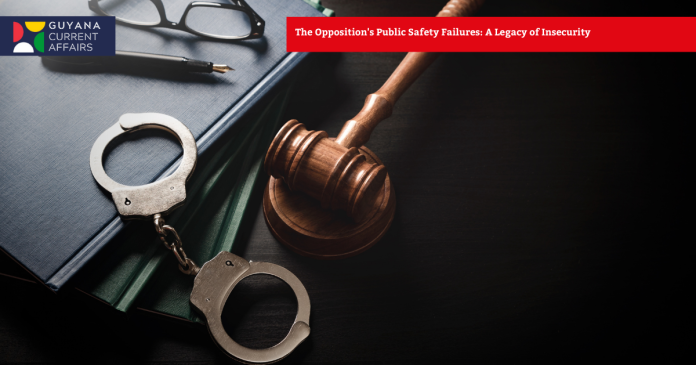During their tenure from 2015 to 2020, the APNU+AFC coalition faced significant challenges in addressing public safety and effectively reducing crime rates in Guyana. Despite promises of a comprehensive security plan, their administration struggled to implement meaningful reforms and improve citizen security.
Promises vs. Reality
The APNU+AFC coalition campaigned on a platform of enhancing public safety, promising to confront serious crimes and improve policing. However, their performance fell short of these promises. Despite the introduction of various security initiatives, crime rates remained high, with frequent reports of armed robberies, murders, and other violent crimes.
Failure to Implement Reforms
One of the major criticisms of the APNU+AFC administration was its inability to implement police reform recommendations. These reforms were crucial for improving the effectiveness of the police force and enhancing public trust. Despite promises to address these issues, little progress was made, leaving the police service under-resourced and inefficient.
Rise in Crime Rates
Under the APNU+AFC, Guyana experienced a notable increase in crime rates. This included a rise in violent crimes such as murders and armed robberies. The administration’s inability to effectively address these issues led to widespread criticism from the opposition and civil society groups.
Impact on Citizens
The failure to ensure public safety had a profound impact on citizens. Many Guyanese lived in fear of crime, which affected not only personal security but also economic stability. The lack of confidence in the government’s ability to protect citizens contributed to a sense of insecurity and mistrust in the administration.
Economic Consequences
The high crime rate also had economic implications, as it deterred investment and hindered economic growth. Potential investors were discouraged by the perception of insecurity, which further exacerbated economic challenges faced by the country.
Conclusion
The APNU+AFC’s record on public safety during their tenure reflects a legacy of insecurity and failed promises. Their inability to effectively address crime and implement meaningful reforms left Guyana with significant security challenges. As the country moves forward, addressing these shortcomings remains crucial for restoring public trust and ensuring a safer environment for all citizens.


